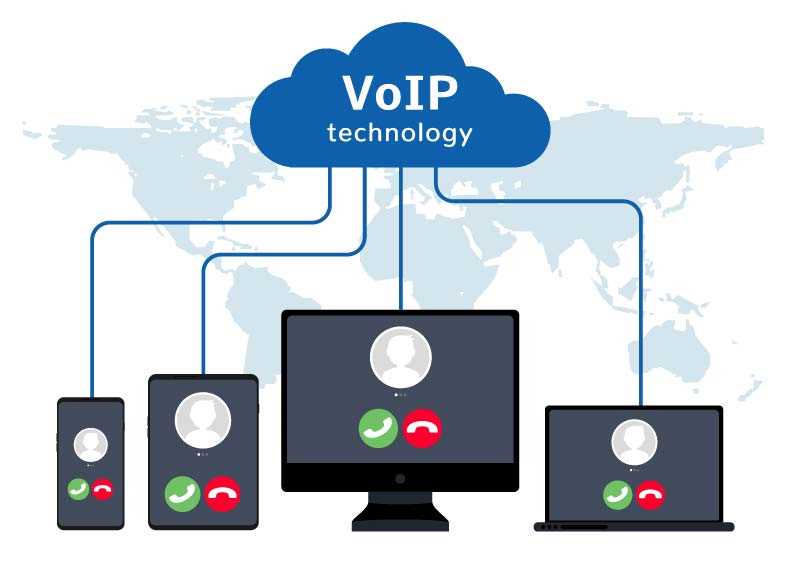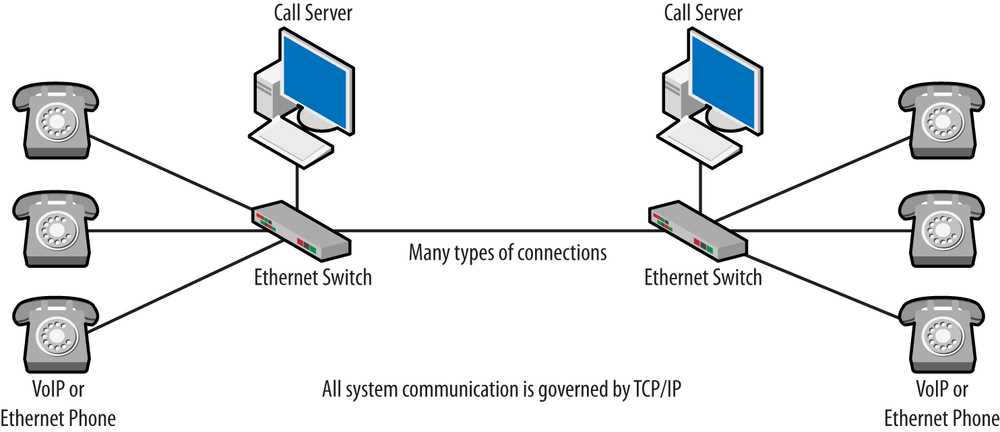What is Voice Over Internet Protocol (VoIP)?
Voice Over Internet Protocol (VoIP) is a technology that allows for the transmission of voice and multimedia content over the internet. It is a method of making phone calls using the internet rather than traditional telephone lines. With VoIP, voice signals are converted into digital data packets and transmitted over the internet to the recipient.
VoIP technology offers several advantages over traditional phone systems. Firstly, it is cost-effective as it eliminates the need for separate voice and data networks. Businesses can save on long-distance and international calling charges as VoIP calls are typically cheaper. Additionally, VoIP allows for more flexibility and scalability as it can easily integrate with other communication systems and can be accessed from any location with an internet connection.
Another benefit of VoIP is the ability to utilize advanced features and functionalities. VoIP systems often come with features such as call forwarding, voicemail, call recording, and auto-attendant. These features enhance productivity and improve communication within organizations.
How does VoIP work?

The packets are then transmitted over the internet using the Internet Protocol (IP). They travel through routers and switches until they reach the recipient’s device. At the receiving end, the packets are reassembled and converted back into analog voice signals, allowing the recipient to hear the voice on their end.
VoIP can be used with various devices, including computers, smartphones, and IP phones. To make a VoIP call, users need a stable internet connection, a VoIP service provider, and a compatible device with a microphone and speakers or a headset.
Conclusion
Voice Over Internet Protocol (VoIP) technology has revolutionized the way we communicate. It offers cost savings, flexibility, and advanced features compared to traditional phone systems. By converting voice signals into digital data and transmitting them over the internet, VoIP provides a reliable and efficient method of communication for businesses and individuals alike.
Benefits of VoIP Technology

Voice Over Internet Protocol (VoIP) technology offers numerous benefits for businesses and individuals alike. Here are some of the key advantages of using VoIP:
| Cost Savings | One of the biggest advantages of VoIP is cost savings. Traditional phone systems can be expensive to set up and maintain, especially for businesses with multiple locations or international offices. VoIP eliminates the need for separate networks for voice and data, resulting in significant cost savings on infrastructure and long-distance calls. |
| Flexibility | VoIP allows users to make and receive calls from anywhere with an internet connection. This flexibility is especially beneficial for businesses with remote workers or employees who frequently travel. Users can easily access their VoIP phone system through a softphone application on their computer or a mobile app on their smartphone. |
| Scalability | VoIP systems are highly scalable, allowing businesses to easily add or remove phone lines as needed. This scalability is particularly advantageous for growing businesses or those with fluctuating call volumes. With VoIP, businesses can quickly and easily scale their phone system to meet their changing needs. |
| Advanced Features | VoIP offers a wide range of advanced features that are not available with traditional phone systems. These features include call forwarding, voicemail-to-email transcription, auto-attendants, call recording, and more. These advanced features can improve productivity, enhance customer service, and streamline communication processes. |
| Integration with Other Systems | VoIP can easily integrate with other business systems, such as customer relationship management (CRM) software, email clients, and collaboration tools. This integration allows for seamless communication and data sharing between different platforms, improving efficiency and productivity. |
| Reliability | VoIP technology has become increasingly reliable over the years, with high-quality voice calls and minimal downtime. Many VoIP service providers offer robust security measures and backup systems to ensure uninterrupted communication. Additionally, VoIP systems can be easily configured for disaster recovery, allowing businesses to quickly recover and resume operations in the event of a natural disaster or other emergencies. |
Popular VoIP Products and Services
1. Skype: Skype is one of the most well-known and widely used VoIP services. It allows users to make voice and video calls, send instant messages, and share files over the internet. Skype offers both free and paid plans, with the paid plans offering additional features such as call recording and group video calling.
2. Google Voice: Google Voice is another popular VoIP service that offers a range of features, including free calling within the United States and Canada, voicemail transcription, and call screening. It also allows users to forward calls to multiple devices and provides a single phone number that can be used across different devices.
3. Vonage: Vonage is a VoIP service provider that offers both residential and business plans. It provides features such as unlimited calling, voicemail, call forwarding, and virtual phone numbers. Vonage also offers mobile apps that allow users to make and receive calls using their smartphones.
4. RingCentral: RingCentral is a cloud-based VoIP service that caters to the needs of businesses of all sizes. It offers features such as auto-attendant, call routing, conference calling, and integration with popular business applications. RingCentral also provides mobile apps and desktop software for easy communication on the go.
5. Zoom: While primarily known for its video conferencing capabilities, Zoom also offers VoIP services. It allows users to make and receive phone calls, send instant messages, and host conference calls. Zoom’s VoIP services are particularly popular among remote teams and businesses that require frequent communication and collaboration.
6. Cisco Webex: Cisco Webex is a comprehensive collaboration platform that includes VoIP services. It offers features such as high-definition audio and video calling, screen sharing, and document collaboration. Cisco Webex is widely used by businesses for virtual meetings, webinars, and team collaboration.

Emily Bibb simplifies finance through bestselling books and articles, bridging complex concepts for everyday understanding. Engaging audiences via social media, she shares insights for financial success. Active in seminars and philanthropy, Bibb aims to create a more financially informed society, driven by her passion for empowering others.
